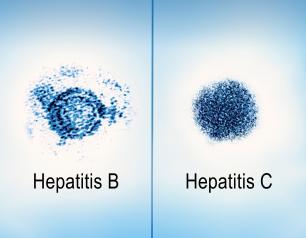21 Results
NIAID Research Key to H5N1 Influenza Preparedness Efforts
H5N1 influenza viruses have been around for years, but the spring 2024 outbreak of a highly pathogenic H5N1 avian influenza among U.S. dairy cows prompted new concerns. NIAID scientists and NIAID-funded researchers have been working closely to monitor the outbreak, understand spread among animals and develop potential prevention and treatment methods as part of larger U.S. government pandemic preparedness efforts.
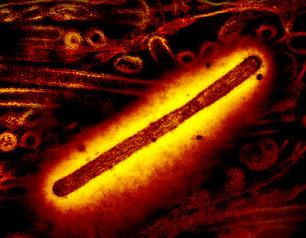
Can Improved Tests Speed Up Treatment for Antibacterial Resistant Infections?
An ongoing NIAID-supported trial is testing whether rapid tests for antibiotic susceptibility can improve patient outcomes.
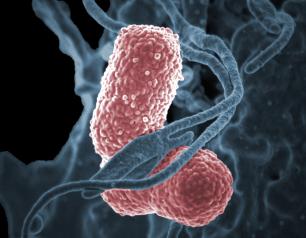
Fungal Disease Awareness Week—Fighting Fungi at NIAID
Fungal Disease Awareness Week spotlights clinical trials of improved treatments for fungal infections, such as better use of antibiotics and treatment combinations.
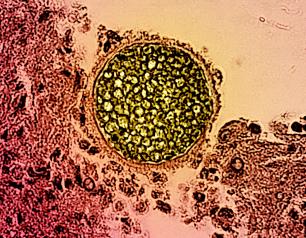
World Mosquito Day 2024—The Metabolic Mysteries of Mosquito Metabolism
Mosquitoes are considered one of the most dangerous animals on earth because of their broad distribution and the many pathogens they transmit to humans. Dr. Patricia Scaraffia, Associate Professor at the Tulane University School of Public Health and Tropical Medicine, has dedicated her career to understanding the metabolism of the mosquito species that carries the pathogens responsible for dengue, Zika, chikungunya, and yellow fever to humans. NIAID reached out to Dr. Scaraffia about her team’s research.
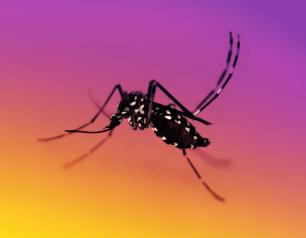
NIAID Funds Cutting-Edge Genomics and Bioinformatics Programs
NIAID has announced six awards to continue the Genomics Centers for Infectious Diseases (GCIDs) and Bioinformatics Resource Centers (BRCs) for Infectious Diseases, both important data science networks offering critical resources for the scientific community.
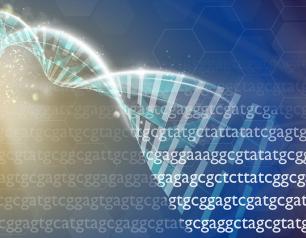
NIAID Research to Eliminate the Threat of Viral Hepatitis Across the Globe
Viral hepatitis affects the lives of about one in twenty people in the world, resulting in over a million deaths each year. NIAID is working on many ways to prevent and treat the different types of hepatitis, including the development of vaccines and improved therapeutics and diagnostics. July 28 is observed annually as World Hepatitis Day, providing an opportunity to reflect on the impact of hepatitis on global health and focus on strategies to reduce its burden. To observe World Hepatitis Day, NIAID highlights recent advancements researchers have made in these areas.
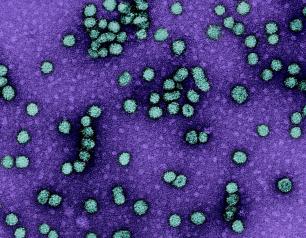
Our Words Have Power—NIAID Embraces Respectful, Inclusive, and Person-First Language
by Jeanne Marrazzo, M.D., M.P.H., NIAID Director
Our institute is responsible not only for advancing scientific knowledge, but for doing so in a way that honors the dignity, individuality, and autonomy of the people affected by the health issues we address. For this reason, I am very proud to share the updated NIAID HIV Language Guide, a thoroughly vetted resource to inform our written and verbal communications.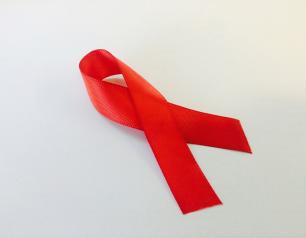
Exploring a Meningitis Vaccine for Gonorrhea Prevention
A preventive vaccine for gonorrhea would be a major advance in public health, according to an editorial co-authored by NIAID Director Jeanne Marrazzo. The genetic sequences of the bacteria that cause gonorrhea and meningitis B, are closely related. This has led researchers to explore whether the 4CMenB vaccine, approved by the Food and Drug Administration for meningitis B, might also prevent gonorrhea. NIAID is sponsoring an efficacy study of the 4CMenB vaccine for gonorrhea prevention.
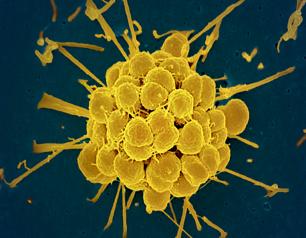
The HIV Field Needs Early-Stage Investigators (VIDEO)
by Jeanne Marrazzo, M.D., M.P.H., NIAID Director
The HIV research community is led by scientists with deep personal commitments to improving the lives of people with and affected by HIV. Our collective decades of work have generated HIV testing, prevention and treatment options beyond what we could have imagined in the 1980s. Those advances enable NIAID to explore new frontiers: expanding HIV prevention and treatment modalities, increasing understanding of the interplay between HIV and other infectious and non-communicable diseases, optimizing choice and convenience, and building on the ever-growing knowledge base that we need to develop a preventive vaccine and cure. The next generation of leaders will bring these concepts to fruition, and we need to welcome and support them into the complex and competitive field of HIV science.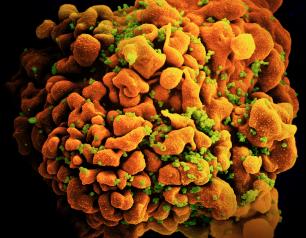
Sexually Transmitted Infections—A Closer Look at NIAID Research
Sexually transmitted infections (STIs) are caused by bacteria, viruses, or parasites. NIAID supports research across the spectrum from basic to clinical science to develop effective diagnostic, preventive and therapeutic approaches to STIs in alignment with the National STI Strategic Plan. In recognition of National STI Awareness Week, NIAID shares a snapshot of new projects and recent scientific advances in STI research.
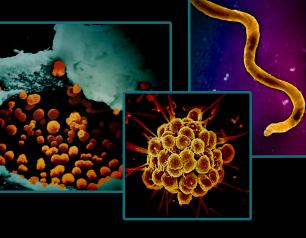
HIV Treatment Research and Key Takeaways: Dr. Dieffenbach’s Final Update from CROI 2024 (VIDEO)
On March 6 as the 2024 Conference on Retroviruses and Opportunistic Infections (CROI) was winding down, HIV.gov spoke with Carl Dieffenbach, Ph.D., director of NIAID's Division of AIDS, about highlights of long-acting HIV treatment research discussed at the conference. He spoke with Brian Minalga, M.S.W., deputy director of the NIH-supported Office of HIV/AIDS Network Coordination. Watch their conversation.

Doxy-PEP, HIV Vaccines and Community-Engaged Research: Discussions with Carl Dieffenbach and LaRon Nelson at CROI 2024 (VIDEO)
During the first full day of presentations at the 2024 Conference on Retroviruses and Opportunistic Infections, HIV.gov spoke with Carl Dieffenbach, Ph.D., director of NIAID’s Division of AIDS, and LaRon Nelson, Ph.D., R.N., F.N.P., F.N.A.P., F.N.Y.A.M., F.A.A., professor and associate dean at the Yale School of Nursing. They discussed Doxy-PEP for STI prevention, HIV vaccines, community engagement in research, and more. Watch their discussions.

Novel CMV Vaccine Generates Stronger Response in Key Immune Cells Than Previous Candidate
A messenger RNA (mRNA) vaccine designed to prevent human cytomegalovirus (CMV) elicited long-lasting CMV-specific responses from several types of immune cells, outperforming a previous vaccine concept in multiple measures in a NIAID-supported laboratory study. The findings were published in the Journal of Infectious Diseases.
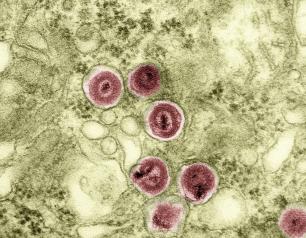
World Neglected Tropical Diseases Day – Focus on Leishmaniasis
World Neglected Tropical Diseases (NTD) Day offers an opportunity to reflect on recent strides in tropical disease research and the work that remains. NIAID conducts and supports work on a wide variety of diseases—some of which rarely make headlines but cause immense suffering. An example of this is leishmaniasis, a parasitic disease that sickens hundreds of thousands of people each year, mostly in equatorial regions of the globe. In recent years, NIAID has made significant efforts to study the parasite that causes the disease and find new ways to battle it.
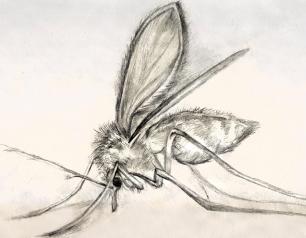
Scientists Discuss Prototype Pathogens for Pandemic Preparedness
A special Oct. 19 supplement to the Journal of Infectious Diseases contains nine articles intended as a summary of a National Institute of Allergy and Infectious Diseases (NIAID)-hosted pandemic preparedness workshop that featured scientific experts on viral families of pandemic concern.

The STOMP Trial Evaluates an Antiviral for Mpox
NIAID launched the STOMP trial to determine whether the antiviral drug tecovirimat can safely and effectively treat mpox. In a video, Dr. Cyrus Javan of NIAID's Division of AIDS explains the importance of the STOMP trial.
HPAI Influenza Devastating Birds, Marine Mammals in Peru--Study Identifies Concerning Viral Mutations
NIAID-funded researchers working in Peru have signaled concern about the deaths of birds and marine mammals from highly pathogenic avian influenza (HPAI) that has been spreading globally.
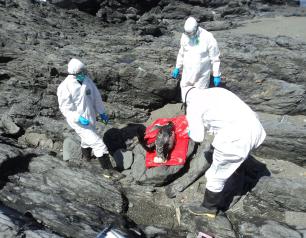
Ohio State Scientists Evaluate Role of Deer in SARS-CoV-2 Transmission
SARS-CoV-2 evolves three times faster in white-tailed deer than in people, making NIAID-funded scientists at The Ohio State University and colleagues ask whether deer are an important reservoir for emerging virus variants.
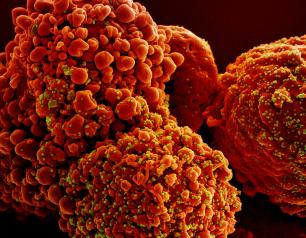
NIAID-Funded Study Traces Evolution of Malaria Drug Resistance in E. Africa
A new NIAID-funded study shows how inconsistent malaria control measures in East Africa could be aiding the emergence of drug-resistant mutations in the primary parasite that causes malaria.
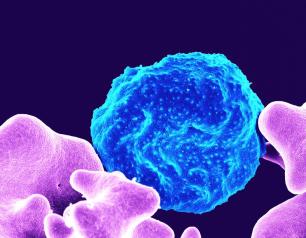
World Mosquito Day 2023—How Mathematical Modeling Reveals the Link Between Climate Change and Mosquito-Borne Diseases
As global temperatures rise, it has become more urgent to understand the interactions between climate, mosquitoes, and the pathogens mosquitoes transmit to humans. NIAID Now spoke to Luis Chaves, Ph.D., a 2023 Scholar with the National Institutes of Health (NIH) Climate Change and Health Initiative, about his work about the impacts of environmental change on the ecology of insect vectors and the diseases they transmit.

Hepatitis B and C—A Closer Look at NIAID Research to Accelerate Elimination
Viral hepatitis is an inflammatory liver disease caused by infection with any of the known hepatitis viruses—A, B, C, D, and E. Most of the global viral hepatitis burden is from hepatitis B and C, which affect 354 million people and result in 1.1 million deaths annually. The Centers for Disease Control and Prevention estimates that in 2020 there were 14,000 and 50,300 new acute infections of...
